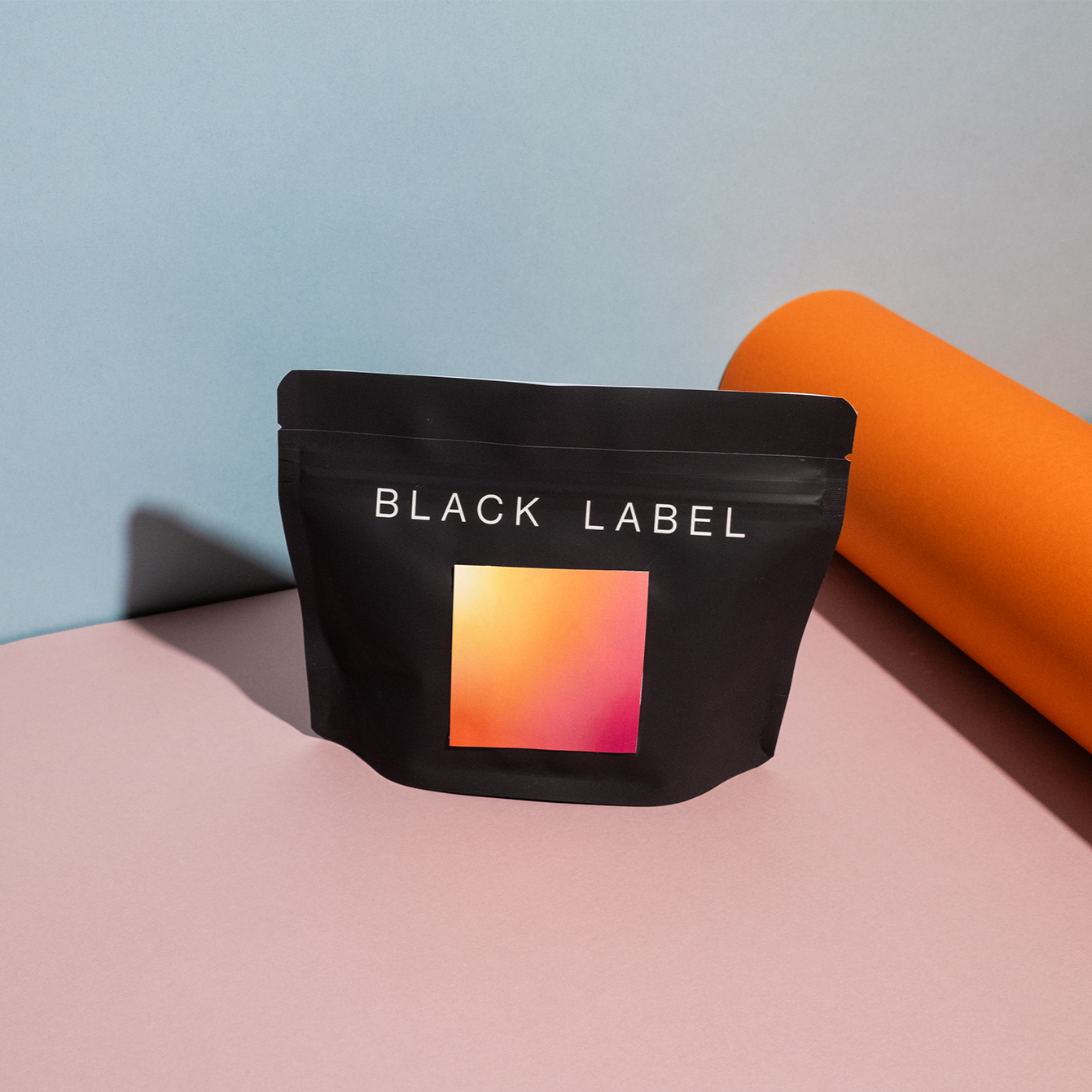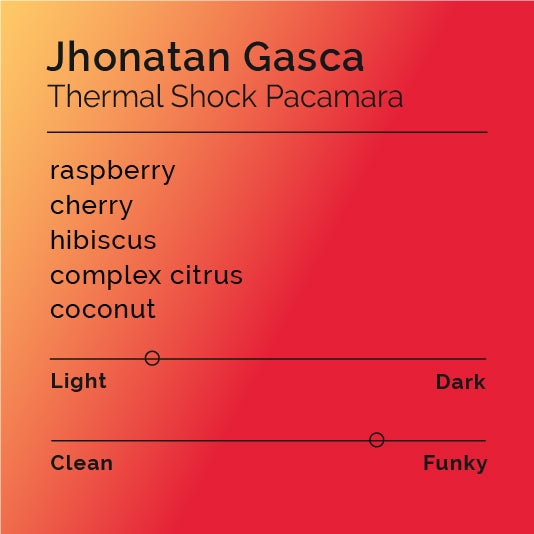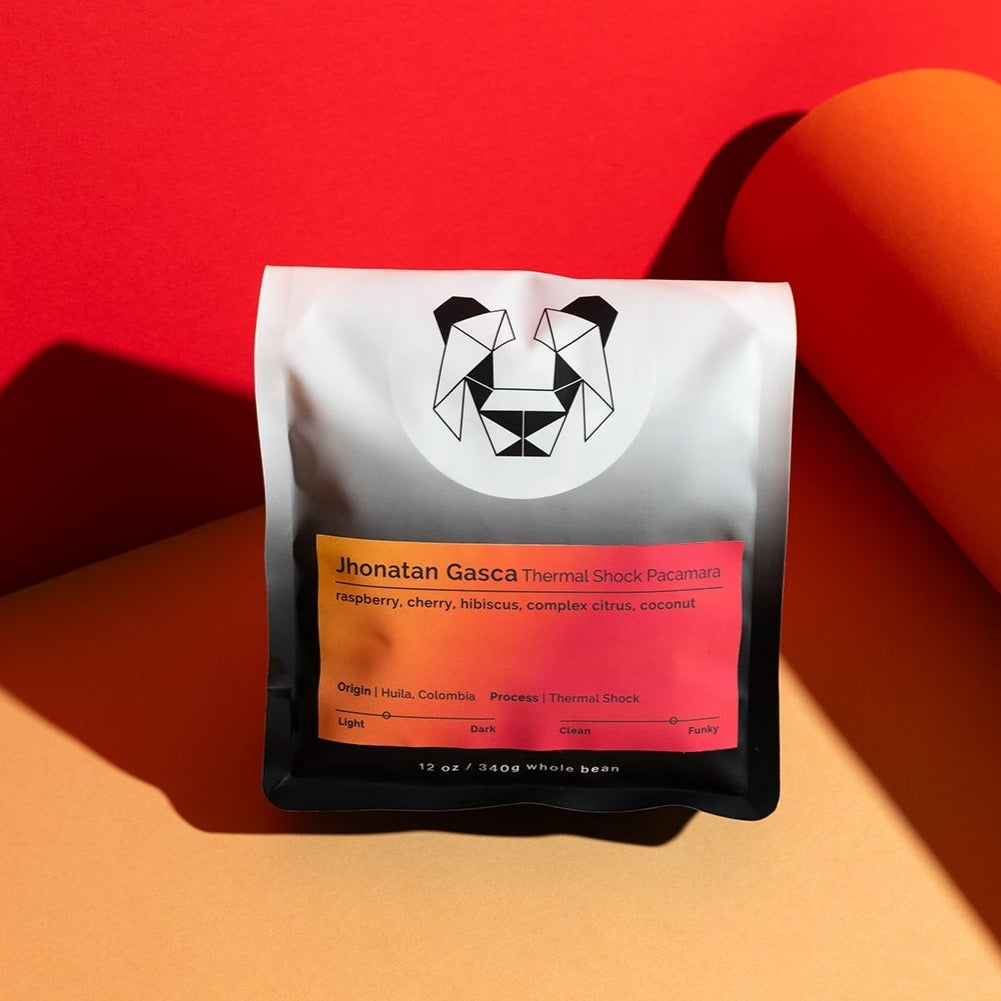Jhonatan Gasca - Thermal Shock Pacamara
Description
MEET THE PRODUCER | Jhonatan Gasca is no stranger to failure. In 2010, he failed in his attempt to become a professional soccer player. After re-routing his future and graduating from the Colombian National Technical Institute, Jhonatan returned to his father's coffee farm and started experimenting with fermentation methods. At first, this did not go well. After a couple of years of running trials and being turned away by coffee buyers, Jhonatan grew discouraged and gave up his newfound interest in processing methods for a long time.
Finally, in 2018, Jhonatan was encouraged by his friends from El Diviso and Las Flores to start experimenting again. And this time, he thrived! Jhonatan found the right buyers (our new friends at Lohas Beans) and is quickly becoming a leader in processing innovation in his home country of Colombia. In fact, this coffee will be served on the barista competition stage in Houston later this week, by our very own (and dearly loved) Jake McFarland.
TRUST THE PROCESS | After being picked at peak ripeness, the coffee cherries are placed in 200-liter tanks with water, where floaters and other impurities are removed. The water is then drained, and a second round of quality sorting (by hand) ensues. The cherries are left to oxidize for 48 hours in open bags, giving them time to warm up and thus enhancing both sweetness and fruit flavors. After two days, the bags are closed to prepare the cherries for 150 hours of anaerobic fermentation. During this time, the sugar present in the still-intact mucilage interacts with lactic acid bacteria and microorganisms in the fermentation environment, further intensifying those fruity flavors. This second round of fermentation abruptly ends when the cherries are "quenched:" a specific method of cooling down coffee cherries, wherein first hot (50 degrees Celsius) and then cold (20 degrees Celsius) water is used to wash the cherries, eliminating the microbial load and opening the pores in the bean (with the hot water) before rapidly sealing them (with the cold water), locking in all of those delicious fruit flavors. Finally, the cherries are spread out two dry on African beds for two weeks, being closely monitored for humidity.
TAKE A SIP | If you made it through that whole processing narrative, you'll likely already know what I'm about to tell you: this coffee is chock-full of fruit! Big red fruit flavors (think raspberry and cherry), fun tropical notes (like coconut!), and complex citrus have all entered the chat. Look out for this lovely hibiscus note, too - it further contributes to those tropical vibes in the cup. Thanks to all of that fermentation, this coffee drinks on the front end just like a big natural coffee, but it finishes like a washed coffee due to that quenching method we detailed above. And honestly, it really does give us the best of both worlds. Cheers.
___________________________________________________________________________
Origin | Bruselas, Huila, Colombia
Producer | Jhonatan Gasca Serna
Farm | Zarza
Process | Double Anaerobic Thermal Shock
Variety | Pacamara
Elevation | 1750 masl




